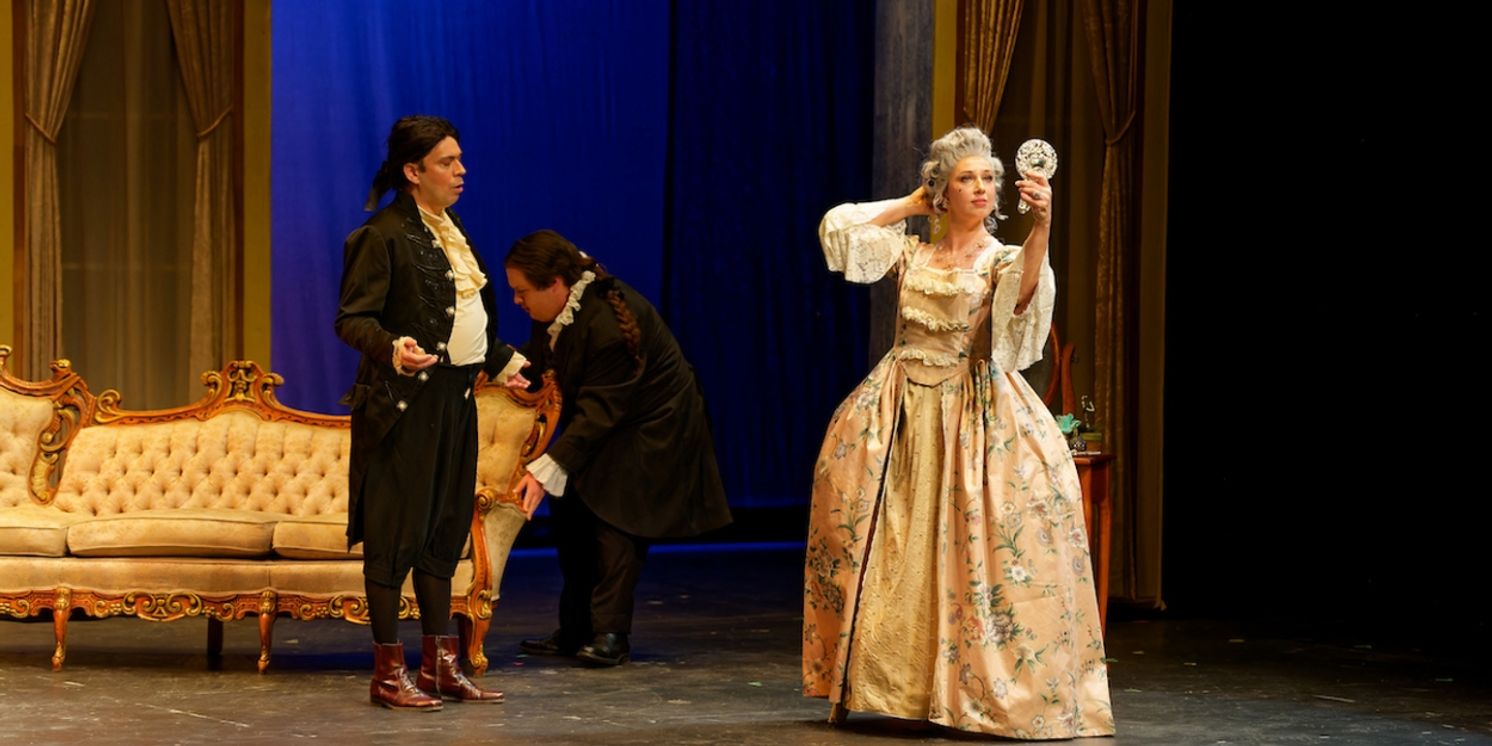Review: MANON LESCAUT at Winter Opera
Winter Opera gives us great Puccini.

Gina Galati’s wonderful Winter Opera company continues its 17th season with Puccini’s Manon Lescaut. This work, which opened in 1893, was Puccini’s first great hit. It was rather daring of Puccini to present this piece, based as it was on a novel that had already been adapted to opera by two other composers—first by Daniel Aubert (1856), and then in a hugely successful work by Jules Massenet 1884. But it was an archetypically operatic story—an emotional tug-of-war between a rich old man and a poor young one for the affections of a beautiful young woman (viz. La Traviata, La Rondine, Don Pasquale, et alia).
It's set in early 18th Century France—and Louisiana.
Puccini felt that he could bring true Italian passion to the tale, and indeed he did. Though it’s an early work, it contains much of the rich, lyrical, romantic feeling for which Puccini is renowned. The intermezzo before Act 3, for example, is as achingly beautiful as anything he ever wrote. It starts with just celli, sweet and hushed, then gradually brings in other strings, then other sections. (This is borrowed from his “Chrysanthemum” string quartet.)
Two astonishingly fine voices lead the cast at Winter Opera. I was delighted to find Zoya Gramagin cast in the title role. I’d been quite floored by her voice in Union Avenue’s Eugene Onegin, and she brings that same rich blessing to Manon. She shows such effortless power, she so easily fills the hall. And that pure voice is capable of such drama!
The Chevalier de Grieux, Manon’s young lover, is sung by Taylor Comstock. You may recall him from the company’s Desert Song last season, where, as the Berber sheik, his remarkable voice shone out clearly through the voices of the chorus. Here he shows that that voice is simply perfect for Puccini. Several times he swiftly soars up an octave, his voice swelling with smooth power as he reaches that summit. His Act 3 plea for mercy presents the sheer glorious size of his voice.
Geronte, Manon’s rich older suitor, is sung by Joseph Park. He brings a clear, rich bass that almost surprises us—for he’s relatively young and trimly built. With bold and graceful movement he commands the scene.
Jonathan Stinson sings Manon’s brother, Lescaut, who variously supports the wooing of one suitor or the other. It’s another very strong performance.
There’s great variety of tone: merry flirtations at the inn, a balladeer (charmingly sung by Thomas M. Taylor), intense romance, a delightful pastoral madrigal, prison gloom, lost and starving in the desert (sic) of Louisiana!
Poor Manon shuttles back and forth between her lovers. What does she want—love or riches? When Geronte finds out that she is (again) fleeing with her Chevalier he calls the police to arrest her—for prostitution. She delays too long in gathering her jewels—and she goes to prison. And, ultimately, to exile in Louisiana.
Edward Benyas conducts the quite flawless orchestra. Jesse Cunningham works wonders as chorus master. Stage director Geovonday Jones deftly manages the large cast. Scott Loebl again gives us a gorgeous set—beautifully simple and flexible. A great painting of a harbor scene sets the time and place. It’s all gracefully lit by Michael Sullivan. Costumer Jen Blum-Tatara dresses her cast beautifully, but I noticed an odd absence of vests for the men in this tightly-buttoned era.
The original novel was written by Antoine Prèvost who clearly had a strong sense of melodrama and of romance, but little sense of American geography. A desert in Louisiana? But then Jules Verne, in a novel, describes the “craggy mountains of Kansas”. Those Frenchmen!
The libretto was written by six different Italian hands—plus Puccini himself. So it’s a bit disjointed, occasionally unclear. Of the six librettists Luigi Illico and Giuseppe Giocosa were to go on to write libretti for Puccini’s great hits—La Bohème, Tosca and Madama Butterfly.
Many thanks to Winter Opera and to Gina Galati for bringing us such splendid productions of even the less frequently performed works of the masters.
Manon Lescault played at Winter Opera on January 19 and 21.
Reader Reviews
Videos

